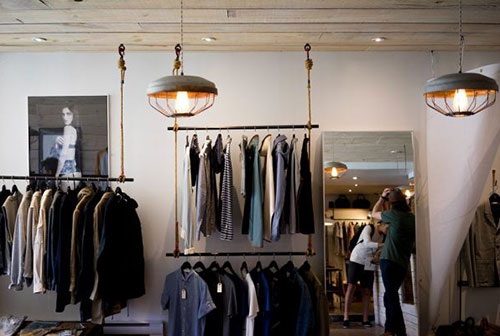 Faced with constant retail order cancellations due to COVID-19 is compelling many wholesalers to adopt alternative channels of delivering their products to consumers directly. Stuck with excess inventory, these wholesalers are now implementing tactics like platforming products, drop shipping, and adopting consignment and rental models.
Faced with constant retail order cancellations due to COVID-19 is compelling many wholesalers to adopt alternative channels of delivering their products to consumers directly. Stuck with excess inventory, these wholesalers are now implementing tactics like platforming products, drop shipping, and adopting consignment and rental models.
Tapping digital channels with virtual appointments
One alternative emerging for these brands is holding virtual appointments with clients and customizing their products according to need. As Melissa Gonzalez, CEO and Founder of retail consulting firm The Lionesque Group points out, these virtual appointments enable brands to digitally answer their questions or demonstrate products. A digital channel, Virtual Styling app, created by apparel brand Paige enables customers to connect with retail experts via video conference besides giving them a sneak peek of latest collections. Shoppers can also communicate through video conference tools such as Facetime, Zoom, Google Hangouts or WhatsApp. Besides, these initiatives, the company also livestream tutorials on wellness and grooming, favorite books, music and TV shows on Instagram.
Embracing a rental model
Brands are also embracing the rental model to boost revenues. Rental trend has taken off across a wide range of industries from gyms renting out their dormant exercise machines to bridal companies leasing wedding costumes and sporting goods companies lending their equipment. Steve Cody and Bruce Linton, Former Co-CEOs of cannabis company Canopy Growth, Founded peer-to-peer rental marketplace Ruckify help brands and retailers monetize their inventory. Sales on this marketplace have tripled since the beginning of the pandemic even though the company has slashed expenditure on customer acquisition.
Providing a single sale point through consignment stores
Another sales mode opening up for wholesalers is the consignment model. Virtual stores offer a single point of sale for retailers. Founded by Neighbourhood goods, these stores usually feature brands that shoppers would not typically find in a store. For instance, the consignment store of Neighborhood goods embraces some larger brands such as Dollar Shave Club, Modern Citizen, Aesop and Fossil.
They have also introduced a free platform called ‘The Commons by Neighborhood Goods’ for brands, restaurateurs, musicians and artists to engage with customers and reinvigorate their businesses.
Making customization a key to success
Realizing the need for a new sales model, Performance denim brand Duer launched ‘Next by Duer’, a new platform that allows shoppers to order products before they are made. These orders are then sent to the factory, customized according to demand and shipped to customers. This helps them save money as the orders are prepaid. This lightens the inventory besides reducing waste.
Left with excess inventory, athleisure apparel brand Vuori shifted focus to comfort clothing. It also began to engage with customers digitally by livestreaming on Instagram with a fitness trainer for a morning exercise class. Similarly, men’s apparel brand Cuts Clothing has collaborated with Happy Returns to provide its customers with a physical space to return products. This allows them to focus more on its products.
Despite the challenge they pose, brands still acknowledge the opportunities that wholesale provides. However, they need to remodel operations in a way that in future, wholesale makes up a smaller percentage of overall sales, advises Zahra Bahari, CEO of brand management firm The Powell Cos Real.












